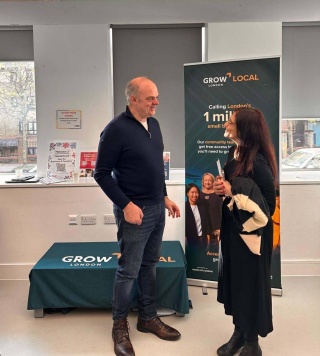NINE TIPS TO IMPROVE LOCAL SEO FOR SMALL BUSINESSES

For smaller businesses local SEO can seem a daunting and time consuming task. Trying to decode what search engines want, what your customers are searching for and how to make them see you is tricky given the amount of different information available. Today I wanted to share some local optimisation tips that we at Go Mungo SEO provide as a service to help you rank higher and reach more customers in your local area.
1. Optimise Google My Business (GMB) Profile
The first place to start is with a Google local business listing here https://www.google.com/business/.
This is very simple to fill out form and you will need to add your opening hours, your business name, address and location. Then you can submit for verification simply by having a postcard sent to your address with a verification code. Once completed you will have a live knowledge box about your business – so now it’s time to make sure this shows up for other local searches.
2. Schema Markup
Schema markup or microdata tags are designed to define a particular thing, product, person company or place. This is a technical piece of coding that categorises specific information for search engines. For examples of schema markup using JSON click here.
Microdata markup helps search engines recognise your locality – and rank you accordingly for relevant search terms in your area. This can increase your business visibility dramatically if done correctly. On your business website you should use schema markup on your address, business name, logo and other relevant information. You can find the code for all schema mark ups at schema.org.
3. Google Reviews
Whilst support for Google Plus is waning, businesses with greater numbers of local reviews outrank those with fewer. This means as a business we need to actively solicit reviews from our customers. It is against Google guidelines to create fake reviews or to solicit positive reviews with a reward (such as money off vouchers). However, simply asking our customers is a great way to increase reviews and increase rankings.
4. Local Directory Listings
In the SEO world directories have a very bad reputation. 5 or 6 years ago SEO “companies” would submit websites to thousands of directories to increase rankings. This was a very bad approach to SEO and resulted in many websites being penalised. However, local search directories are still a very good way to improve local rankings. This is simply because the site is locally targeted (by state, county, city etc.) and search engines can recognise a listing as being relevant to a local area.
When thinking about local rankings you should look for local only websites and larger, generic local directories. Local only websites include local newspapers and local business organisations. Generic local directories are services like Yell.com or Yelp.co.uk that provide listings for all types of businesses.
With all of these local websites you shouldn’t need to pay for a listing and don’t worry about whether you get a link back to your website. Search engine algorithms will make these connections for you. Simply fill out all your company information.
5. Leverage Local News
Very few small businesses leverage the power of local news. Particularly outside of major cities small local newspapers are always on the lookout for more stories. Whenever you have something of interest (an anniversary, an expansion or a charity event) you should write a press release to send out to local newspapers. Once this is sent out you should follow up a few days later with a phone call. If you persevere your business news will be featured in papers and online. This again adds to your local credibility, increases your marketing reach and helps local search results.
6. Local Keyword Optimisation
Identify and use relevant local keywords in your website content, meta tags, and other online materials. Incorporate location-specific terms that your target audience might use when searching for products or services in your area. This helps search engines connect your business with local search queries.
7. NAP Consistency (Name, Address, Phone Number)
Ensure consistent NAP information across all online platforms, including your website, social media profiles, and local directories. Consistency reinforces your business's credibility and helps search engines verify the legitimacy of your business, positively impacting local search rankings.
8. Local Link Building
Build a strong local link profile by acquiring high-quality backlinks from reputable local sources. This could involve collaborations with other local businesses, sponsoring community events, or getting featured in local news outlets. These local links signal to search engines that your business is relevant and reputable within the community.
9. Mobile Optimisation
Optimise your website for mobile devices, as many local searches are conducted on smartphones. Ensure that your website is responsive, has fast loading times, and offers a user-friendly experience on mobile devices. Google prioritizes mobile-friendly websites in search rankings, especially for local searches.
Implementing these tips can significantly enhance your small business's visibility in local search results, making it easier for potential customers in your area to find and engage with your products or services. If you want our team at Go Mungo SEO to run a local SEO campaign for you please don't hesitate to get in touch.

